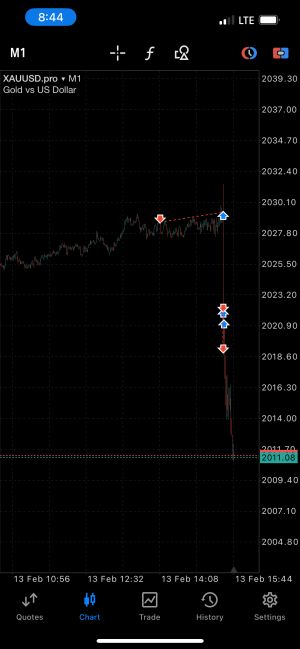Trading Terminal/Mobile
Trading Terminal: On Mobile
@PJ clown me please This is what I get for being a meat stick and trading on my phone with my fat fingers PJ— Today at 3:13 AM im so lost why a multi fig multi year trader doesntg own a laptop or a pc you choose to live stressful and trade on your phone Goldenboy — Today at 3:23 AM I’m so lost why everyone thinks I am 6 figs+ and a god I quite literally prove I’m shit when it comes to 90% of stuff all the time
In the fast-paced world of financial markets, traders are constantly on the move, seeking opportunities to capitalize on price movements. With the advent of mobile technology, trading has become more accessible than ever before. However, the convenience of trading on mobile devices comes with its own set of pros and cons.
Pros:
- Accessibility: One of the most significant advantages of trading on mobile devices is accessibility. Traders can monitor their positions and execute trades from anywhere with an internet connection, whether they're commuting, traveling, or simply away from their desktop.
- Flexibility: Mobile trading offers flexibility, allowing traders to react quickly to market developments in real-time. Whether it's news announcements, economic data releases, or sudden price movements, traders can stay nimble and adjust their positions accordingly.
- Convenience: Trading on mobile devices eliminates the need for bulky desktop setups. With just a smartphone or tablet, traders can access their trading platforms and manage their portfolios with ease, saving time and effort.
- Ease of Use: Many trading apps are designed with user-friendly interfaces, making it easy for traders of all experience levels to navigate the platform and execute trades efficiently. Intuitive features such as one-click trading and customizable charts enhance the trading experience on mobile devices.
Cons:
- Limited Screen Size: One of the primary drawbacks of trading on mobile devices is the limited screen size. While smartphones and tablets offer portability, the smaller screen size may hinder traders' ability to analyze charts and data effectively, leading to potential errors or missed opportunities.
- Technical Limitations: Mobile trading apps may lack certain features and functionalities available on desktop platforms. Advanced charting tools, customization options, and order types may be limited or absent, restricting traders' ability to implement complex trading strategies.
- Risk of Errors: Trading on mobile devices introduces the risk of errors, particularly for traders with fat fingers or smaller touchscreens. Accidental taps or swipes could result in unintended trades or incorrect order entries, potentially leading to losses.
- Reliance on Internet Connection: Mobile trading relies heavily on a stable internet connection. Traders operating in areas with poor network coverage or unreliable Wi-Fi may experience delays in trade execution or difficulty accessing real-time market data, impacting their ability to make informed decisions.
In conclusion, trading on mobile devices offers unparalleled accessibility and flexibility, enabling traders to stay connected to the markets wherever they go. However, it's essential to weigh the pros and cons carefully and consider the specific needs and preferences of individual traders before deciding whether to trade on mobile or desktop platforms. Ultimately, finding the right balance between convenience and functionality is key to success in mobile trading.
